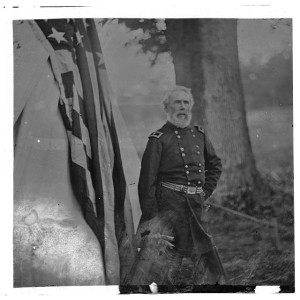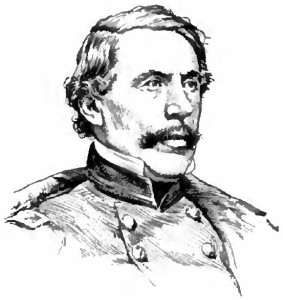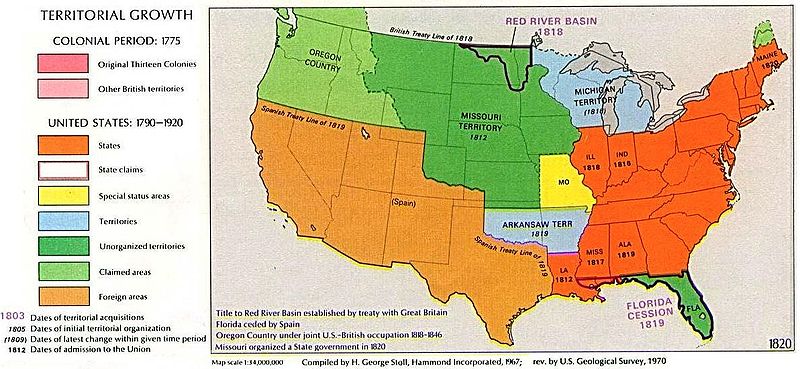From a Seneca County, New York newspaper in March 1863:
Death of Gen. Sumner.
Major General EDWIN V. SUMNER died at the residence of his son-in-law at Syracuse, on Saturday morning March 21st, at the advanced age of 67 years. He was one of the oldest and most respected officers in the service of the Government, having been appointed second Lieutenant in March 1819. He passed through the Mexican War and repeatedly distinguished himself for gallant and meritorious service. In March 1861 he was appointed Brigadier General in the regular army, in place of Gen. Twiggs. He was then ordered to the command of the Pacific, but being anxious for active service in the field, he was recalled to the East, and in March 1862, was appointed to the First Army Corps in the Army of the Potomac under Gen. MCCLELLAN. He served with him through the Peninsula campaign, taking a very prominent part in the struggles of that gallant Army. For his services before Richmond he was appointed major General. He bore a prominent part in the battles under Pope, and Burnside, after McClellan was relieved of command of the Army. Gen. SUMNER at the time of his death was on his way to the West, to succeed General Curtis, in that Department. His death is a great loss to the country, and he was one of the best and bravest officers in the service.
His funeral took place at Syracuse on Wednesday and was a grand and imposing demonstration. Major Generals FREMONT and WALLACE, and other distinguished officers were present.
Also from a Seneca County, New York newspaper in 1863:
Gen. McClellan on Gen. Sumner.
The following letter from Ge. McClellan to the Mayor of Syracuse, appears in the Courier of that city:
NEW YORK, March 23, 1863.
Hon. D. BOOKSTAVER, Mayor of Syracuse.
DEAR SIR: – I regret that my engagements are of such a nature as to render it out of my power to attend the funeral of my lamented comrade, General Sumner.
It would afford me peculiar satisfaction to pay that just tribute of respect to his memory at this particular time, for in him the nation has sustained a loss it can ill afford at such a juncture as this.
All recognized the high honor, loyalty and courage of that distinguished veteran.
He presented to younger men the higher example of unswerving devotion to his country, and of a firm determination to sacrifice everything that might be necessary in subduing the rebellion, and restoring peace and the unity of the nation, by putting forth all the strength of the country to defeat its armed enemies in the field.
Although the nation has lost his service, we have at least his example left for our imitation.
Please present to the family of Gen. Sumner my sincere sympathy.
And believe me to [be] truly you[r]s,
GEO. B. MCCLELLAN, Maj. Gen. U.S.A.
You can view Sumner’s place in Oakwood Cemetery at Find A Grave.
“Bull Head” joined the army the year before the Missouri Compromise and its explicit, tit-for-tat, slave-state versus free-state provisions. Of course, the Constitution was already pointing that way with its three-fifths person rule.



